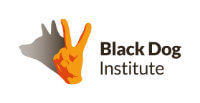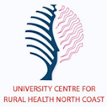Sign up below to receive monthly eMHPrac newsletters and updates about the latest digital mental health news, events, and resources.

In this edition:
- Awards in Digital Mental Health – Congratulations to Head to Health and MindSpot
- New e-Mental Health Guidelines for Practitioners and Researchers
- Tips to Stay Well During the Voice to Parliament Referendum
- eMHPrac Podcast – Season 3 Episode 5
- Live Webinars from BDI
- WellMob – new blog post
- See the eMHPrac team at these upcoming conferences
- Read the latest dMH research articles
- This month’s featured service: The BRAVE Program
Awards in Digital Mental Health
MindSpot Awarded Employer of Choice in the Australian Business Awards 2023

MQ Health MindSpot has been selected as an Employer of Choice in The Australian Business Awards 2023. The Australian Business Award for Employer of Choice recognises organisations that develop workplaces that maximise the full potential of their workforce through established policies and practices which demonstrate effective employee recruitment, engagement and retention.
This recognition highlights MindSpot’s dedication to fostering a workplace culture that prioritises employee well-being and development. With an impressive 91% staff satisfaction rating and a commitment to flexible working arrangements, MindSpot continues to lead not only in digital mental health care but also in creating a positive and empowering environment for its workforce.
Head to Health Awarded a Good Design Award for Excellence in Design and Innovation
Head to Health, the national mental health service navigation website has won a prestigious Good Design Award for Excellence in Design and Innovation at this year’s award ceremony, with the judges recognising “Head to Health approaches an important service with respect and creativity. The personalised user experience demonstrates the comprehensive research behind the design.
This award for the New Head to Health Connected Digital Experience recognises how the digital Head to Health team took human-centred design to the next level to meet the challenge in a timely way. By developing a diverse, systemic and collaborative research and design approach to engage people with markedly different experiences, expertise and methods, they were able to create better outcomes for Australians seeking support for their mental health and wellbeing.
New Guidelines for E-Mental Health Released
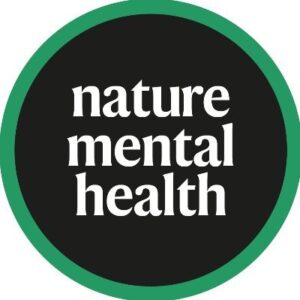
Nature Mental Health have published a new guideline, “How to e-mental health”. Developed by 25 international experts, this comprehensive resource offers evidence-based strategies for researchers and practitioners using digital technology in mental health contexts. The new guideline touches on important ethical considerations, AI’s potential, and real-world implementation, with the aim to enhance global access to effective e-mental health care.
Tips to Stay Well During the Voice to Parliament Referendum
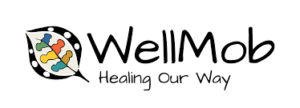
The WellMob team have developed a valuable resource, “Tips to stay deadly during the Voice to Parliament referendum”, to support Aboriginal and Torres Strait Islander People during the Voice to Parliament Referendum. It has links to online resources relevant to each tip, including useful webpages on the WellMob website for online safety, strong minds and culture and identity.
Digital Mental Health Musings: Season 3 Episode 5
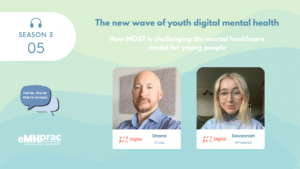
Season 3 Episode 5 – ‘The new wave of youth digital mental health: How MOST is challenging the mental healthcare model for young people’
Guests: Shane Cross, Head of Research (Orygen Digital) and Savannah Whieldon, Queensland Peer Work Coordinator (Orygen Digital)
“The Power of bringing the best of digital technology and the portability of that with human support is quite important – human supported digital interventions then lead to better engagement.”
-A/Professor Shane Cross, Head of Research at Orygen Digital
In this episode of Digital Mental Health Musings, we talk to Professor Cross and Savannah Whieldon, Orygen Digital’s Peer Work Coordinator, about the inspiring work that led to MOST (Moderated Online Social Therapy). MOST is a platform co-designed with young people and a multi-disciplinary team of youth mental health experts to transform youth mental health through digital technology. In this conversation we chat about how health professionals can use MOST to support young people while they’re waiting for care, to expand on their face-to-face sessions once they are in care, and to use after discharge from a service. We also delve into the research behind MOST, who the service is best suited to, and take a look at the platform’s safety systems.
Watch of listen to the podcast episode here and catch up on past episodes here.
Live webinars from Black Dog Institute

“Short Mental Health Interventions: Making our practices Neurodiversity Friendly”
When: Online, 26 Sep 12:30pm and 6pm AEST
In this 30 minute webinar, Dr Jan Orman will be joined by Dr Sarah Barker to discuss a framework for making consultations more comfortable for the neurodiverse people within our communities. They will explore the Autistic SPACE framework, designed by Autistic Doctors International for autistic people, to facilitate a collective conversation about how interactions can be made more helpful for everyone.
“Using Social and Emotional Wellbeing Tools with First Nations Peoples”
When: Online, 23 Nov 1pm and 8pm AEST
The WellMob website is a digital library with links to over 350 online resources to support the social and emotional wellbeing (SEWB) of Aboriginal and Torres Strait Islander peoples. Using the examples of an Indigenous client presenting with depression, the webinar will explain how the SEWB framework is relevant to clinical and community practice and show how to find and effectively use WellMob resources.
World Suicide Prevention Day
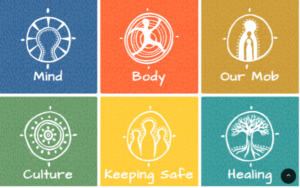
Our WellMob website team have developed Resource Sheets for Workers on a range of common wellbeing topics for Aboriginal and Torres Strait Islander peoples. The team have hand-picked the top resources for common issues faced by First Nations communities including on the hard hitting issue of Suicide Prevention. There are two different resource sheets on Suicide Prevention: one has links to resources to support families, carers and communities, and the other is for First Nations people experiencing suicidal ideation. See these resources here: Suicide Prevention.
Catch us at these upcoming conferences

WONCA (World Organisation of Family Doctors)
26-29 October 2023, ICC Sydney, Sydney NSW
Workshop
Recovery, reconnection, and revival. A celebration of primary care.
See Dr Jan Orman from the eMHPrac team at Black Dog Institute and Dr Phoebe Holdenson-Kimura present the workshop: ‘Online therapy programs – can they help improve mental health care delivery in primary care?’
Indigenous Wellbeing Conference
30-31 October 2023, Darwin Convention Centre, Larrakia Country, NT
Presentation and Trade exhibit
Our Voices | Our Solutions | Our Decisions | Our Time
Improve the social and emotional wellbeing of First Nations Australian, Māori and Pasifika people at the Indigenous Wellbeing Conference.
See Dr Michelle Sweet and the eMHPrac Team at Menzies School of Health Research present on: ‘What are the Youth saying! – Innovative digital solutions for improving Wellbeing in community’. Also catch Sharnie Roberts from the eMHPrac Team at the University Centre of Rural Health present on” ‘WellMob: A digital library of online well-being resources for our deadly mob’.
Rural Mental Health Conference
8-10 November 2023, Commercial Club, Albury, NSW
Presentation and Trade exhibit
Feeling isolated? Hard to see the difference you’re making? Join us at the Rural Mental Health Conference and connect to your sector and peers like never before.
See eMHPrac Director Heidi Sturk present on ‘Finding Human Connection Amidst the Digital Mental Health Revolution’ and visit the eMHPrac team at their trade exhibit. Also catch David Edwards from the University of Sydney eMHPrac team present on ‘Exploring the WellMob website: a digital library of wellbeing tolls for health workforce and mob’.
On our reading radar…
Pira, G. L., Aquilini, B., Davoli, A., Grandi, S., & Ruini, C. (2023). The Use of Virtual Reality Interventions to Promote Positive Mental Health: Systematic Literature Review. JMIR Mental Health, 10(1), e44998. Doi: 10.2196/44998
Baker, A. L., McCarter, K., Turner, A., Segan, C., Castle, D., Brophy, L., … & Sweeney, R. (2023). ‘Quitlink’: Outcomes of a randomised controlled trial of peer researcher facilitated referral to a tailored quitline tobacco treatment for people receiving mental health services. Australian & New Zealand Journal of Psychiatry. Doi: 10.1177/00048674231181039
Slade, T., Chapman, C., Conroy, C., Thornton, L., Champion, K., Stapinski, L., … & Newton, N. C. (2023). 24-month outcomes of an eHealth universal program for students and parents to prevent adolescent alcohol use: a cluster randomized controlled trial in schools. Internet Interventions, 33, 100648. Doi: 10.1016/j.invent.2023.100648
This edition’s featured service…

The BRAVE Program
About The BRAVE Program
The BRAVE Program is a free online program for the prevention and treatment of anxiety in Australian children and young people aged 3-17, and their parents. The program was developed by a team of researchers from the University of Queensland, Griffith University and the University of Southern Queensland, and has been specifically designed to teach young people the skills they need to reduce anxiety and to cope with stressful situations.
Who is The BRAVE Program for?
The BRAVE Program is designed for children and teenagers aged 3-17 years, and their parents.
There are three programs designed to address anxiety in young people. There is a Young Child Program for aged 3-7, a Child Program for 8-12 year olds, and the Teen Program for 12-17 year olds. These programs also come with accompanying Parent Programs, allowing them to participate alongside their child. This allows parents to enhance their skillset for dealing with anxiety alongside their child.
Is there a cost to use The BRAVE Program?
There is no cost to use The BRAVE Program.



